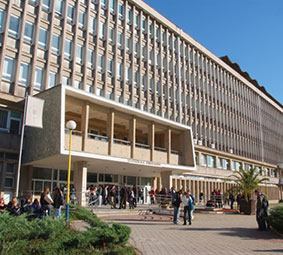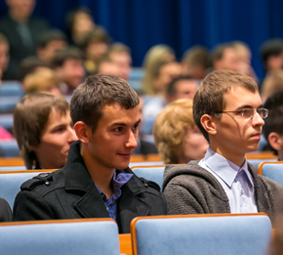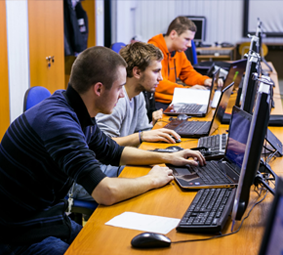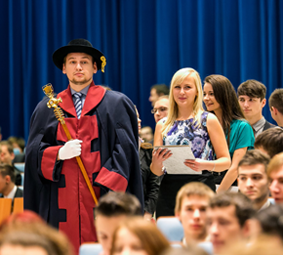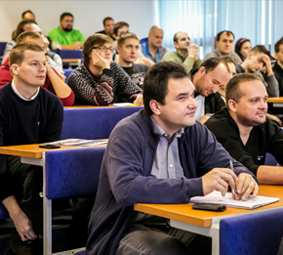Projects
|
Project name |
Project description |
|---|---|
| Agent based modeling of the spectrum distribution in the cognitive radio networks |
|
| Analýza písma pre klinické počítačové systémy pre podporu rozhodovania |
|
| Application of new principles in the education of IT specialists in the field of formal languages and compilers |
We present a project in which we will focus on redesign and expanding the existing course focused on formal languages and compilers. Our primary goal is to expand the content of the course to take into account the current knowledge in the field of processing, generation and translation of computer languages. The partial goals are focused on the creating of teaching materials, a web portal and supporting software for the emulation and visualization of selected algorithms and procedures in the field of formal languages. It is assumed that this will make it easier and faster for students to understand theoretical and practical principles and increase interest not only in the course, but also in broader foundations and principles. The expected benefit is then better availability of teaching content for students. It is also expected to increase the ability to properly and practically use the acquired knowledge and skills and to become one of the leading IT specialists.
|
| BIP2 – Balík inovatívnych prvkov pre reformu vzdelávania na TUKE |
Balík prvkov pre skvalitnenie a inováciu vzdelávania na TUKE, ITMS kód projektu:26110230070 |
| BIP3 - Balík zlepšení kvality TUKE prostredníctvom sietí |
http://www.tuke.sk/tuke/strukturalne-fondy-eu/vyzva-1-2-vysoke-skoly-a-v... |
| BIP4 - Balík inovatívnych prvkov pre reformu vzdelávania na TUKE |
Balík doplnkov pre ďalšiu reformu vzdelávania na TUKE, ITMS:26110230093 |
| CEEPUS - Central European Exchange Program for University Studies |
CIII-HU-0019-13-1718, CIII-HU-0019-12-1617, CIII-HU-0019-11-1516, CIII-HU-0019-10-1415, CIII-HU-0019-09-1314 International Cooperation in Computer Science |
| Computer-Aided Decision Support System for Hepatic Encephalopathy |
The goal of this project is to provide deep speech and handwriting analysis and investigate whether speech and handwriting can be used for diagnosis and monitoring of hepatic encephalopathy and whether there exists relationship between speech, handwriting and other biomarkers in hepatic encephalopathy. The number of novel signal processing algorithms, which reveal alteration in handwriting and speech more accurately than existing approaches, are proposed, giving rise to new group of features. The robust feature selection algorithms select the optimal subset of these features, which are fed into non-parametric regression and classification algorithms, mapping the signal processing algorithm outputs to stage of hepatic encephalopathy. Even though proposed project is focused on particular disease, we expect that some of the outputs, such as new features will be applicable also for other diseases. |
| Enhancing cognition and motor rehabilitation using mixed reality |
Technological advancements based on mixed reality (MR) offer various challenges for research and medical treatment. The project focuses on two objectives related to healthy subjects and hemiparetic patients after stroke. First, we will test the hypothesis whether cognitive training using appropriately designed MR environment will enhance perceptual and cognitive performance in healthy subjects. This will be tested by computerized psychological experiments as well as by measuring event-related potentials or ERPs. Second, we will test the hypothesis whether experience with training in MR (in combination with motor-imagery based brain-computer interface developed by us) will enhance oscillatory sensory-motor rhythms. This will be tested by measuring subject’s EEG activity before and after each training session, clinical testing, as well as by the questionnaires aiming to learn about human factors including mental fatigue, motivation, irritation or sleepiness due to training. In both objectives, we will design and implement a set of testing procedures, carry out a battery of dedicated experiments, and critically evaluate the results with the goal to validate MR designs. |
| ERASMUS+ KA1 - Mobility for learners and staff - Higher Education Student and Staff Mobility |
Academic contact for:
|

